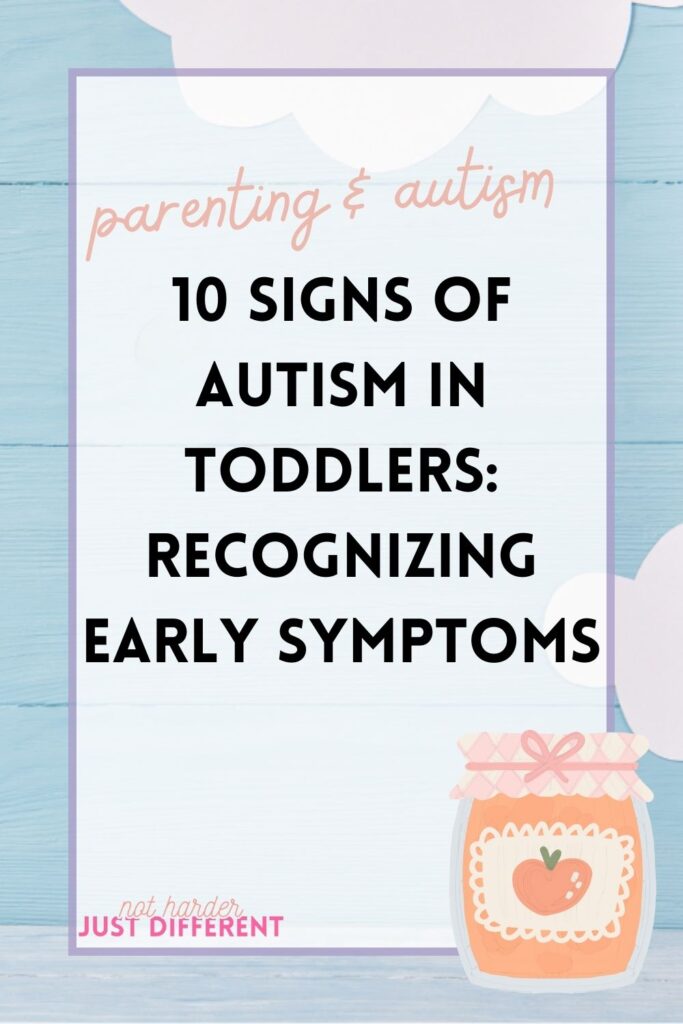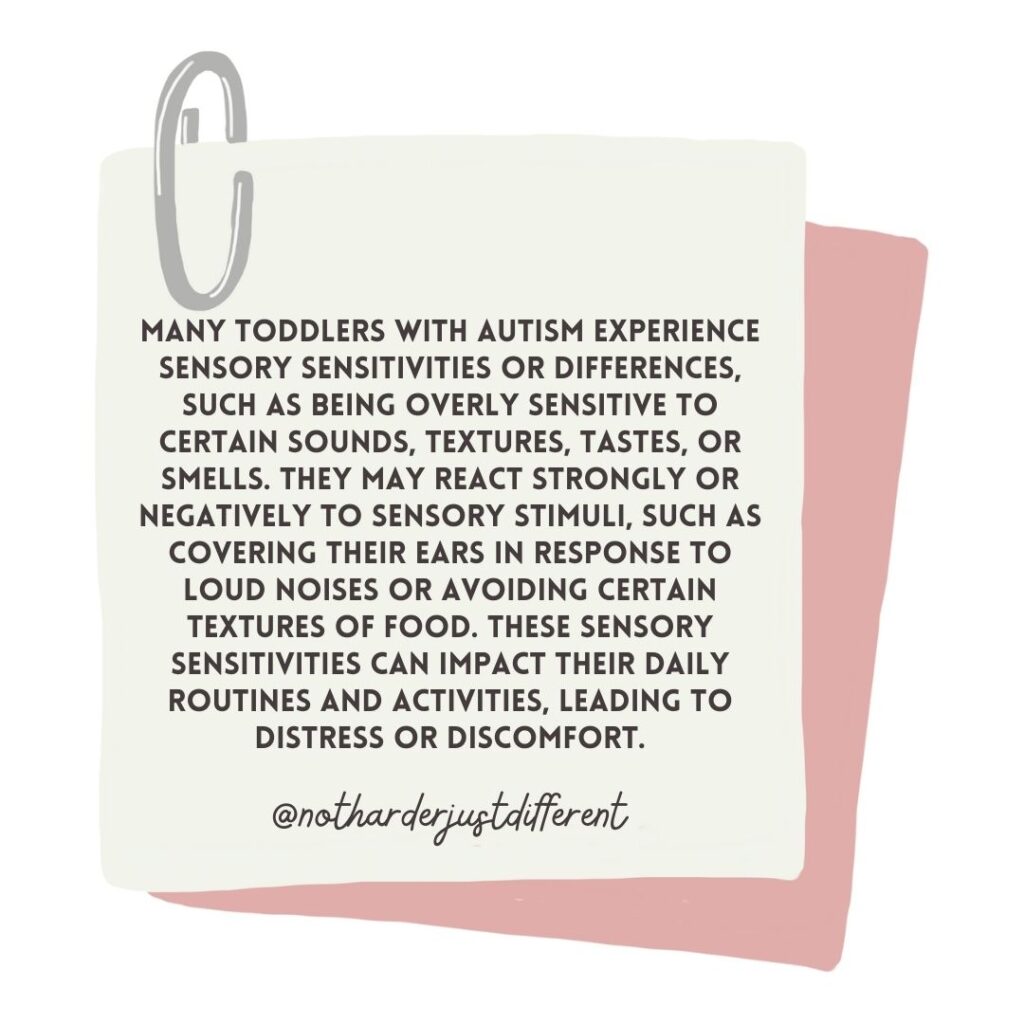Disclaimer: As a future Licensed Clinical Social Worker (LCSW) currently pursuing my master’s degree, I am passionate about sharing insights and information related to parenting, autism and homeschooling based on my personal experiences and research. However, the content shared on this blog is not intended to substitute professional advice, diagnosis, or treatment. Parenting is a deeply personal journey, and while I strive to provide valuable insights, every family and situation is unique. Readers are encouraged to consult with qualified professionals for personalized guidance tailored to their specific needs and circumstances.
As parents, we always keep an eye out for our little ones, making sure they’re growing and developing as they should. Sometimes, though, we might notice certain behaviors in our toddlers that make us wonder if everything’s okay. If you’ve ever had concerns about your child’s development, particularly regarding autism, you’re not alone. In fact, being aware of the early signs of autism in toddlers can be crucial in ensuring they get the support they need as early as possible. So, let’s dive into 10 common signs of autism in toddlers and what they might mean.
Table of Contents
Quick Disclaimer: It’s essential to recognize that exhibiting some of these signs doesn’t necessarily mean your child has autism. Every child develops at their own pace, and certain behaviors can be typical at different stages of development. However, being aware of these signs can help parents and caregivers understand potential red flags and seek further evaluation if necessary. If you have concerns about your child’s development or behavior, it’s always best to consult with a healthcare professional for a comprehensive assessment and guidance. Early intervention can make a significant difference in supporting children’s developmental needs, regardless of whether or not they have autism.

1. Lack of Eye Contact:
One of the early signs of autism in toddlers is a limited or inconsistent use of eye contact. While it’s natural for young children to look away occasionally, consistent avoidance of eye contact, especially during interactions or when called by name, might be a cause for concern. This behavior can indicate difficulties in social communication and engagement, which are key features of autism spectrum disorder (ASD).
2. Delayed Speech or Language Development:
Delayed speech or language development is another common sign of autism in toddlers. While children develop at their own pace, significant delays in speech milestones, such as babbling by 12 months or speaking single words by 16 to 18 months, could be indicative of ASD. Some toddlers with autism may also exhibit echolalia, where they repeat words or phrases without understanding their meaning.
3. Repetitive Behaviors:
Repetitive behaviors, such as hand-flapping, rocking back and forth, or spinning objects, are frequently observed in toddlers with autism. These repetitive movements or actions serve as self-stimulatory behaviors that help regulate sensory input or manage anxiety. While some repetitive behaviors are typical in young children, an excessive or intense focus on repetitive activities could be a red flag for autism.

4. Sensory Sensitivities:
Many toddlers with autism experience sensory sensitivities or differences, such as being overly sensitive to certain sounds, textures, tastes, or smells. They may react strongly or negatively to sensory stimuli, such as covering their ears in response to loud noises or avoiding certain textures of food. These sensory sensitivities can impact their daily routines and activities, leading to distress or discomfort.
5. Difficulty with Social Interaction:
Difficulty with social interaction is a hallmark characteristic of autism in toddlers. You might notice that your child struggles to engage with others, such as not responding to their name being called, showing little interest in playing or interacting with peers, or preferring solitary activities. Toddlers with autism may also have difficulty understanding social cues, taking turns, or sharing toys during play.
6. Limited Pretend Play:
Pretend play involves using imagination and creativity to engage in make-believe scenarios, such as pretending to feed a doll or talking on a pretend phone. Toddlers with autism may exhibit limited or absent pretend play skills, preferring instead to engage in repetitive or ritualistic behaviors. This difficulty in imaginative play can reflect challenges in understanding abstract concepts and social reciprocity.
7. Fixated Interests or Obsessions:
Another sign of autism in toddlers is the presence of fixated interests or obsessions. Your child might develop intense, narrow interests in specific objects, topics, or activities, spending an excessive amount of time focused on them. These fixations may interfere with their ability to engage in other activities or interact socially with peers, as they may struggle to shift their attention away from their preferred interests.
8. Resistance to Changes in Routine:
Toddlers with autism often thrive on routine and predictability and may become upset or distressed by changes to their daily schedule or environment. They may insist on following the same routines or rituals each day and become upset if even minor changes occur. This resistance to changes in routine can be a coping mechanism for managing anxiety or uncertainty in their environment.
9. Difficulty with Transitions:
Transitions between activities or environments can be challenging for toddlers with autism, leading to meltdowns or tantrums. They may struggle with transitioning from one activity to another, such as moving from playtime to mealtime, or transitioning from home to daycare. Providing visual supports, verbal cues, and warnings before transitions can help ease the process for children with autism.
10. Lack of Social Smiling or Responsiveness:
While most toddlers naturally engage in social smiling and respond to social cues from caregivers, toddlers with autism may exhibit limited social responsiveness. They may not smile in response to others’ smiles or attempts to engage them socially. This lack of reciprocal social interaction can contribute to difficulties in forming and maintaining relationships with others.
Recognizing these signs of autism in toddlers can be the first step in seeking early intervention and support for your child. If you have concerns about your child’s development, don’t hesitate to discuss them with your pediatrician or seek a comprehensive developmental evaluation from a qualified professional. Remember, every child is unique, and early identification and intervention can make a significant difference in your child’s future success and well-being.

